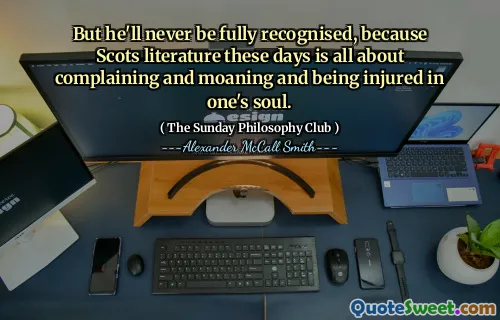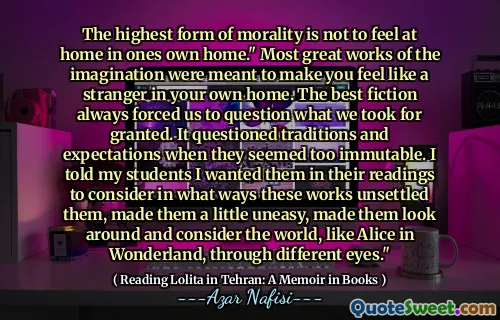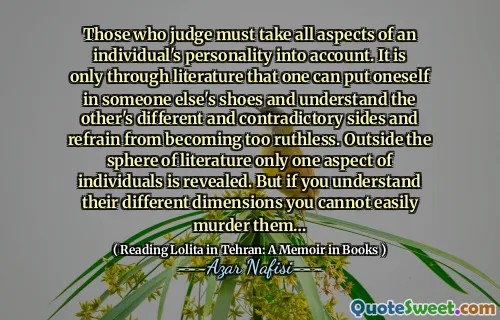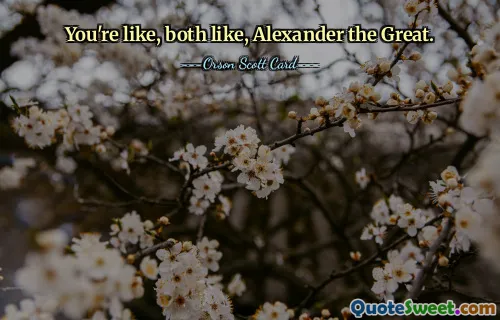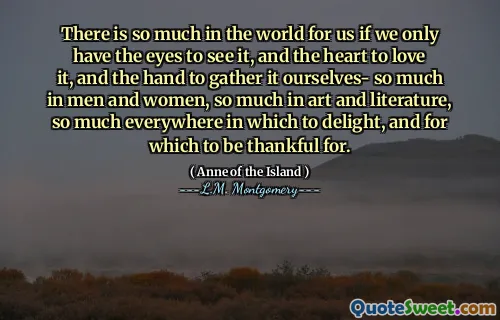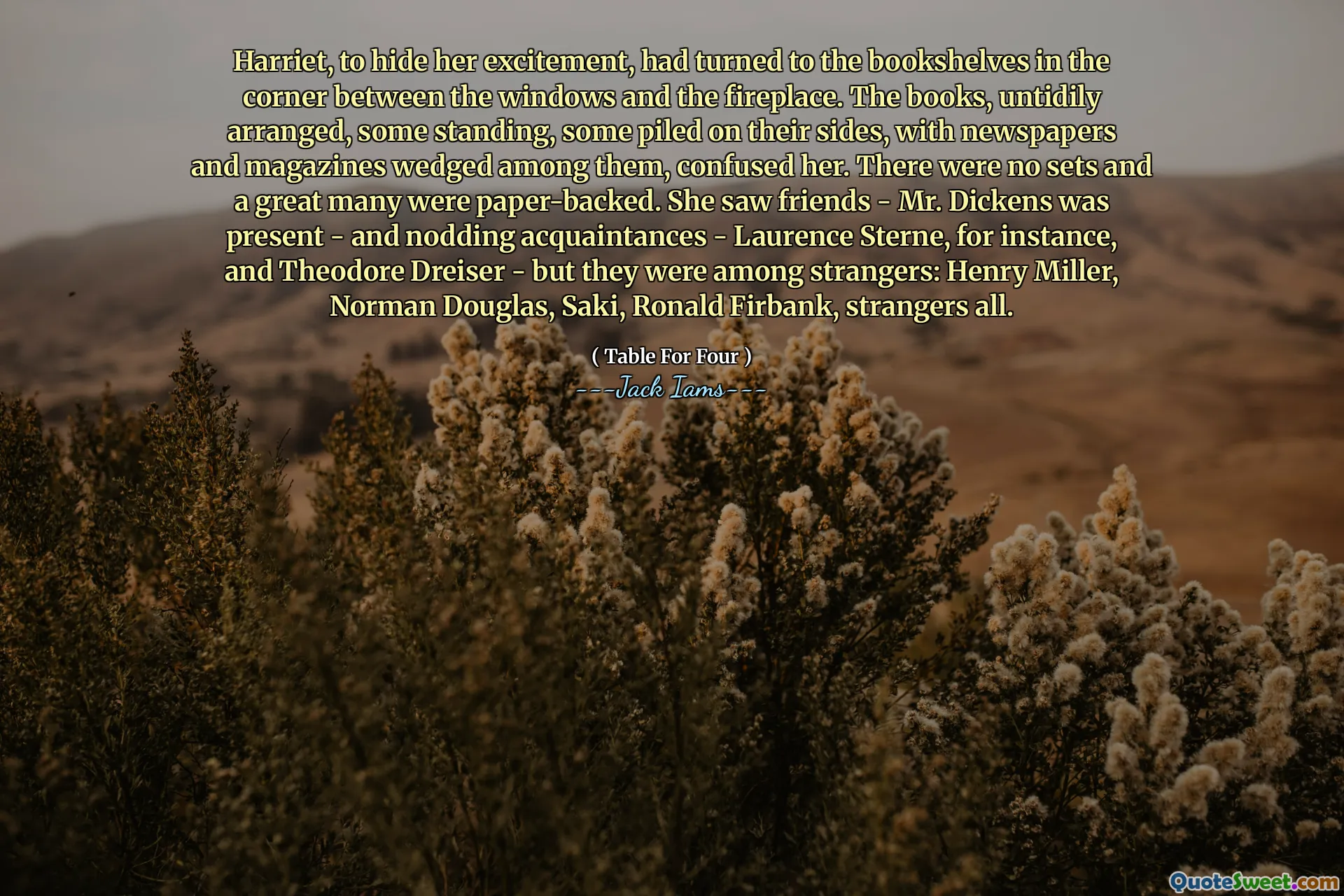
Harriet, to hide her excitement, had turned to the bookshelves in the corner between the windows and the fireplace. The books, untidily arranged, some standing, some piled on their sides, with newspapers and magazines wedged among them, confused her. There were no sets and a great many were paper-backed. She saw friends - Mr. Dickens was present - and nodding acquaintances - Laurence Sterne, for instance, and Theodore Dreiser - but they were among strangers: Henry Miller, Norman Douglas, Saki, Ronald Firbank, strangers all.
This passage offers a vivid glimpse into a moment rich with literary symbolism and subtle emotional undertones. Harriet's attempt to conceal her excitement by diverting her gaze to the chaotic arrangement of books reflects a layered emotional landscape. The disorganized shelves, with their mix of classics, modern authors, newspapers, and magazines, symbolize the eclectic and sometimes overwhelming universe of literature that surrounds her. It suggests a recognition that reading and books are intertwined with identity, social connections, and personal history. The presence of well-known authors like Dickens and Sterne alongside strangers such as Miller and Firbank might symbolize the way literature connects different worlds — familiar and unfamiliar, personal and distant. Harriet's feelings further underscore how literature can provoke deep emotional responses and offer comfort or excitement that must be subtly concealed in social situations. The scene also hints at the universality of books: they serve as bridges, connecting us with friends, acquaintances, and strangers alike, highlighting our shared love for stories that transcend time and place. This moment captures the complex relationship between personal passion and social decorum, where internal excitement about literature remains private beneath a calm exterior. It emphasizes how books, and the act of reading, can be both a refuge and a social marker, shaping our connections and inner worlds.

